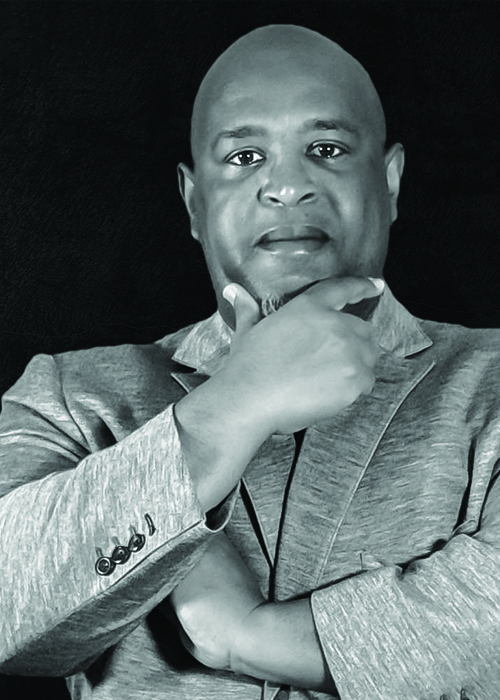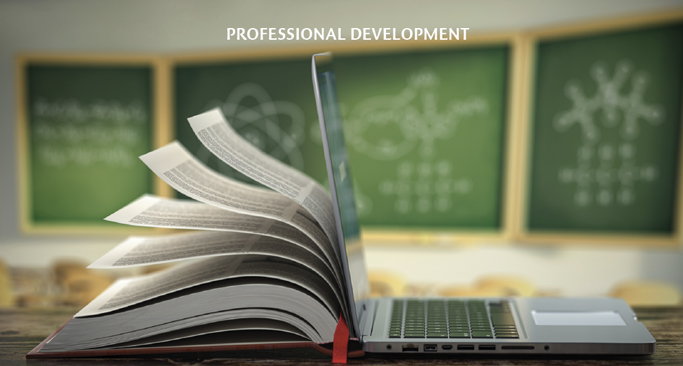The imperative of professional development in the insurance industry
By Mick Hunt
As we navigate through an era where digital transformation reshapes every facet of our lives,
the demand for continuous professional growth becomes undeniable.
Consider the story of Emily, an insurance agent who entered the field over a decade ago. Back then, her job revolved around traditional risk assessment methods and face-to-face client interactions. Fast forward to today, Emily’s role has transformed dramatically. She now relies on AI-driven analytics for risk assessments and digital platforms for customer engagement.
The skills that once defined her expertise are evolving, and to keep pace, Emily embraced continuous learning. Her journey reflects a broader narrative within the industry—a narrative of adaptation and foresight.
This evolution is not isolated to just technology but extends to regulatory, environmental, and societal shifts. As Les Brown, a mentor of mine, often says, “To achieve something you have never achieved before, you must become someone you have never been.”
This quote resonates deeply within the insurance sector, where professionals like Emily must become versions of themselves that they have never been—more adaptable, more tech-savvy, and more client-focused than ever before.
The compelling case for continuous learning
As Emily’s journey in the insurance industry unfolds, her experience highlights a crucial aspect of professional evolution—understanding and responding to the changing landscape with empirical evidence and real-world data. Her story is not unique; it mirrors the experiences of countless professionals across the industry who find themselves at a crossroads of change and opportunity.
The necessity for continuous learning is not just anecdotal but is grounded in compelling statistical evidence:
- Rapid skill obsolescence. A recent report by the World Economic Forum underscores a startling revelation: 42% of the core skills required for existing jobs will undergo a transformation within the next few years. For Emily, this statistic is a call to action. It serves as a reminder that the tools and techniques she mastered a decade ago will not suffice in the coming years. Instead, she needs to retool her skill set to navigate the complexities of modern insurance practices effectively.
- Career advancement through learning. Research from Linked-
In provides a quantitative affirmation that professional development directly correlates with career progression. Individuals who engage in continuous learning are 15% more likely to achieve promotional advancements. For Emily, this meant enrolling in specialized courses on digital insurance platforms and predictive analytics, ensuring her skills remained on the cutting edge, thereby not only securing her position but setting her sights on future leadership roles. - Organizational benefits of professional development. An insurance publication provides data that further solidifies the value of investing in employee development. Organizations that dedicate resources to comprehensive training programs report a 218% higher income per employee compared to those that do not. This statistic transformed how Emily’s employers viewed training and development—from an optional expense to a critical investment in their operational success and profitability.
The power of personal and professional growth
Emily’s story is a testament to the power of personal and professional growth facilitated by continuous learning. As she adapted to new technologies and methodologies, her confidence grew, her performance improved, and her value to her company increased exponentially.
In the words of Mahatma Gandhi, “Live as if you were to die tomorrow. Learn as if you were to live forever.” This quote embodies the spirit of professional development in the insurance industry. It’s a clarion call to professionals like Emily to continuously seek knowledge and skills that not only prepare them for the challenges of today but equip them for the opportunities of tomorrow.
Navigating the future through professional development
As Emily and her peers in the insurance industry face an ever-changing technological landscape and shifting customer expectations, the roadmap for their professional journey is continuously redrawn. Professional development is not just about keeping up; it’s about leading and shaping the future of the industry.
This section highlights how critical ongoing learning is to navigating these changes, supported by powerful statistics that drive the need for future-ready skills, and thought-provoking quotes to inspire action and adaptation.
- Technological integration stats. According to a report by McKinsey, nearly 70% of businesses are expected to implement AI to some degree by the end of 2025. For Emily, this statistic is a clear indicator that her understanding of AI applications in insurance must deepen. It’s not just about using technology; it’s about understanding it well enough to leverage it creatively for risk assessment and customer engagement.
- Consumer expectations stats. A study from the Capgemini Research Institute found that 87% of customers expect their interactions with financial services, including insurance, to be entirely seamless across digital channels by 2023. Well, guess what, folks? It’s 2024, and that statistic proved to be true! This statistic prompts a shift in Emily’s skill set towards mastering digital communication platforms and customer relationship management systems to meet these evolving expectations.
- Quotes on embracing change. “The only way to make sense out of change is to plunge into it, move with it, and join the dance.” —Alan Watts. This quote reflects the dynamic nature of the insurance industry and encourages professionals like Emily to actively participate in shaping the future by embracing new tools and technologies.
- Quotes on lifelong learning. “Education is the most powerful weapon which you can use to change the world.” —Nelson Mandela. In the context of professional development, this quote highlights the transformative power of continuous learning, not just for individual careers like Emily’s, but for the entire industry.
A strategic approach to professional development
The future of insurance hinges on professionals’ ability to anticipate and respond to changes with agility and informed strategy. For Emily, strategic professional development means choosing learning opportunities that align with emerging trends and future needs. This involves:
- Specialized training. Seeking out advanced courses and certifications in emerging fields like cyber insurance, big data analytics, and automated underwriting.
- Leadership development. For those aiming to take on more significant roles, like Emily, leadership development programs can provide the skills necessary to lead teams and drive innovation within their organizations.
- Cross-functional skills. Understanding the intersections of technology, customer service, and business strategy is crucial. Courses that offer insights into these areas enable professionals to integrate their knowledge across different facets of their work, enhancing both efficiency and effectiveness.
As we navigate through an era where digital transformation reshapes every facet of our lives, the demand for continuous professional growth becomes undeniable.

Setting the stage for continuous excellence
As we reach the pivotal point in our discussion, it becomes clear that the journey of professional development is not just a pathway to individual excellence but a gateway to transforming the insurance industry. Here are actionable steps that professionals can take to embrace this transformative journey, punctuated by motivational insights to propel you forward.
Embracing professional development can entail completing several action items or steps:
- Identify learning opportunities. Regularly assess the landscape of available training programs and certifications. Prioritize those that align closely with industry trends and personal career goals.
- Set measurable goals. Define what success looks like in terms of professional development. Set specific, measurable, achievable, relevant, and time-bound (SMART) goals to keep your learning journey focused and effective.
- Engage in community learning. Join professional groups, online forums, and other communities where ongoing learning and knowledge sharing are encouraged. Collaborate with peers to gain diverse perspectives and insights.
- Apply learning to practical challenges. Actively seek opportunities to apply new knowledge and skills to real-world challenges, ensuring that learning translates into competence and performance enhancement.
- Reflect and iterate. Continuously reflect on your professional development experiences. Solicit feedback, assess outcomes, and iterate on your approach to learning, ensuring it remains aligned with your evolving professional needs and industry demands.
I believe that the growth of a person is measured by the depth of their learning and the strength of their adaptability. This reflects the essence of professional development, underscoring the importance of both gaining knowledge and being flexible enough to apply it effectively in ever-changing environments.
American author and motivational speaker Leo Buscaglia put it like this: “Change is the end result of all true learning.” This reflection serves as a reminder that real learning brings about transformation—not just in skills, but in perspectives and paradigms.
As we make the case for and engage in professional development activities, questions arise. Here are some common ones—along with relevant answers to help with the journey:
- Why is professional development important in the insurance industry? Professional development ensures that insurance professionals remain knowledgeable and competent in the face of evolving industry standards, technological advancements, and regulatory changes. It is crucial for maintaining competitiveness and enhancing service delivery.
- How often should I engage in professional development activities? Continuous learning should be an integral part of your career strategy. Aim for at least quarterly assessments of your skills and educational needs, with at least one significant professional development activity annually.
- What are some effective ways to measure the impact of professional development? The impact of professional development can be measured through performance reviews, the attainment of new certifications, feedback from peers and clients, and an increased ability to contribute to projects and innovations within your company.
- Can professional development impact my career advancement? Absolutely. Engaging in professional development not only enhances your skills but also signals to your employer your commitment to growth and excellence. This dedication is often recognized and rewarded with career advancement opportunities.
- Where can I find resources for professional development in the insurance industry? Resources can be found through professional insurance associations, online course platforms, industry conferences, and workshops. Many organizations also offer internal training programs tailored to the specific needs of the insurance market.
By integrating these actionable steps and keeping these FAQs in mind, you empower yourself to navigate your professional journey with confidence and purpose. Embrace these insights and let them fuel your drive toward personal and industry-wide transformation.

The author
Mick Hunt is a well-known CEO and strategic mastermind with expertise in global sales strategy, organizational leadership, and people development. As founder of the Premier Agency Development Institute (PADI), Mick has worked to revolutionize training and development for insurance professionals worldwide. PADI offers agency owners and their staff a suite of live trainings designed to foster sales excellence and leadership acumen.
Beyond strategy and leadership, Mick is committed to the individual growth of PADI members, providing an array of resources from actionable templates to comprehensive how-to guides. He imparts wisdom gleaned from scaling businesses rapidly and sustainably, and his influence extends across the insurance industry. For more information, visit mystrategybox.com.





